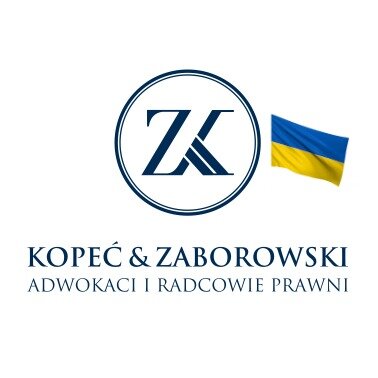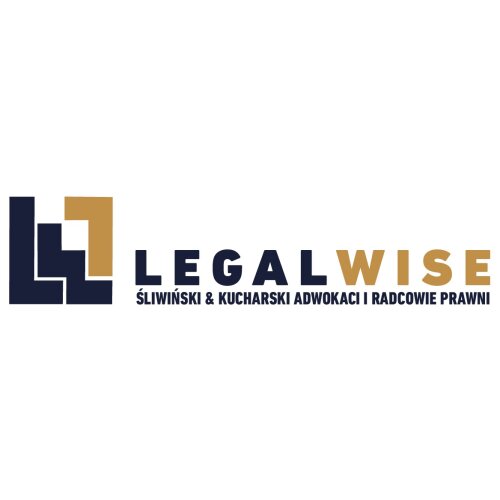Best Water Law Lawyers in Warsaw
Share your needs with us, get contacted by law firms.
Free. Takes 2 min.
List of the best lawyers in Warsaw, Poland
About Water Law in Warsaw, Poland
Water Law in Warsaw, Poland is governed primarily by national legislation, specifically the Water Law Act (Prawo wodne) that came into force on 1 January 2018. This law regulates the management, usage, and protection of water resources throughout Poland, including the city of Warsaw. The goal of the Water Law is to ensure rational management of water resources, prevent water pollution, safeguard ecosystems, and protect the rights of both public and private entities using water. The application of Water Law in Warsaw involves compliance not only with national statutes, but also with EU directives relating to water management, especially within the context of urban development, environmental protection, flood prevention, and public health.
Why You May Need a Lawyer
Individuals and organizations in Warsaw may require a Water Law lawyer in several circumstances. Some common situations include:
- Obtaining water permits for construction, renovation, or business operations involving water usage.
- Addressing disputes over water rights and access between neighbors, property owners, or businesses.
- Dealing with administrative or legal challenges regarding water pollution, contamination, or drainage issues.
- Complying with regulations affecting land development near rivers, lakes, or other protected water areas.
- Defending against sanctions or penalties imposed by governmental bodies for alleged violations of water regulations.
- Advising on the legal aspects of investments in water infrastructure, sewage, or drainage systems.
- Pursuing compensation for damages caused by flooding or improper water management.
A lawyer specializing in Water Law can guide you through complex regulations, represent you in administrative or court proceedings, and help protect your rights and interests.
Local Laws Overview
In Warsaw, Water Law regulations are shaped both by national coverage and local requirements implemented by municipal authorities. Key aspects include:
- Permits and Licenses: Any significant use of water, such as for industrial, business, or construction purposes, typically requires water permits issued by the Polish Waters authority (Wody Polskie).
- Water Fees: Both individuals and legal entities using water resources may be subject to statutory fee structures based on volume and use.
- Protected Zones: Special laws regulate activities near rivers like the Vistula, tributaries, and reservoirs to prevent pollution or ecological harm.
- Flood Risk Management: Stringent regulations exist for building and land use in areas designated as flood risk zones, especially since Warsaw is located along the Vistula River.
- Water Pollution Control: Discharging wastewater or pollutants is strictly regulated and subject to administrative oversight and penalties.
- Public Access Rights: Regulations exist to balance public access to waterways with private property rights.
Awareness of these rules is crucial for compliance and resolving disputes involving water use and management in Warsaw.
Frequently Asked Questions
What is considered a "water permit" in Poland and when is it required?
A water permit is an administrative decision granting legal authorization for specific water-related activities, such as extracting groundwater, discharging wastewater, or altering watercourse banks. Permits are required for any activity that may impact water resources, either quantitatively or qualitatively.
Who issues water permits in Warsaw?
Water permits in Warsaw are generally issued by Polish Waters (Wody Polskie), which is the central authority responsible for managing water resources throughout the country, including the Warsaw region.
Is it necessary to obtain a permit for a private well on my property?
Drilling and using a private well for domestic purposes often requires notification and, in some cases, a water permit, depending on the intended use and depth of the well. Legal advice is recommended to determine your specific obligations.
What are the penalties for illegal water usage?
Unauthorized water use or violations of permit conditions can result in administrative fines, orders to restore the previous state, or even criminal liability in severe cases of environmental harm.
Can I appeal a denied water permit application?
Yes, decisions of Polish Waters, including the refusal of a water permit application, can be appealed to higher administrative authorities and, ultimately, to administrative courts.
How are water pollution disputes resolved?
Disputes regarding water pollution are typically resolved through administrative proceedings, but may also involve civil lawsuits for compensation or criminal proceedings in cases of deliberate contamination.
What regulations apply to building near the Vistula River?
Construction near the Vistula River is subject to special flood risk and environmental protection regulations, often requiring additional assessments and permits to minimize impact on the waterway and its ecosystem.
Are there special rules for farmers or industry regarding water use?
Yes, both agricultural and industrial water users are subject to stricter regulations and monitoring, especially regarding water abstraction, pollution, and discharge of chemicals or waste.
How can I find out if my property is located in a flood risk zone?
Flood risk zones are designated in public registers maintained by Polish Waters and municipal authorities. A lawyer can assist in identifying applicable restrictions and obligations for your property.
What should I do if my property is damaged by a neighbor’s water management practices?
If your property is harmed by water runoff, drainage changes, or other activities, you may have legal grounds to claim compensation or demand cessation through civil action or administrative complaint processes.
Additional Resources
Here are some resources and authorities that provide further information and assistance regarding Water Law in Warsaw:
- Polish Waters (Wody Polskie): The central body for water management, responsible for issuing permits and overseeing compliance.
- Warsaw City Hall Environmental Department: Provides local guidance on environmental and water protection issues.
- Regional Inspectorate of Environmental Protection in Warsaw: Handles environmental monitoring and enforcement, including water quality.
- Voivodeship Administrative Court in Warsaw: Adjudicates appeals and disputes involving administrative water law decisions.
- NGOs and Associations: Various environmental organizations, such as WWF Poland, offer educational materials and may provide support with water-related legal matters.
Next Steps
If you believe you need assistance with a Water Law issue in Warsaw, consider the following:
- Gather all relevant documentation, including property deeds, correspondence with authorities, existing permits, or evidence of any disputes or damages.
- Seek initial advice from a qualified lawyer specializing in Water Law to evaluate your situation and identify the best approach.
- Contact the appropriate local authority, such as Polish Waters or the municipal environmental department, for guidance on procedural requirements.
- Be proactive in meeting all deadlines for applications, notifications, and appeals to avoid penalties or loss of rights.
- If facing legal proceedings, ensure your legal representative has experience with local water regulations and administrative procedures in Warsaw.
Take early action when encountering water-related legal issues to ensure your interests are effectively protected and to prevent future complications.
Lawzana helps you find the best lawyers and law firms in Warsaw through a curated and pre-screened list of qualified legal professionals. Our platform offers rankings and detailed profiles of attorneys and law firms, allowing you to compare based on practice areas, including Water Law, experience, and client feedback.
Each profile includes a description of the firm's areas of practice, client reviews, team members and partners, year of establishment, spoken languages, office locations, contact information, social media presence, and any published articles or resources. Most firms on our platform speak English and are experienced in both local and international legal matters.
Get a quote from top-rated law firms in Warsaw, Poland — quickly, securely, and without unnecessary hassle.
Disclaimer:
The information provided on this page is for general informational purposes only and does not constitute legal advice. While we strive to ensure the accuracy and relevance of the content, legal information may change over time, and interpretations of the law can vary. You should always consult with a qualified legal professional for advice specific to your situation.
We disclaim all liability for actions taken or not taken based on the content of this page. If you believe any information is incorrect or outdated, please contact us, and we will review and update it where appropriate.















